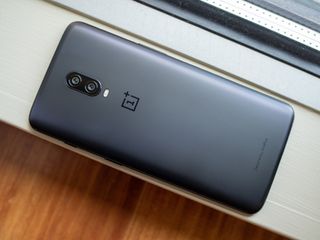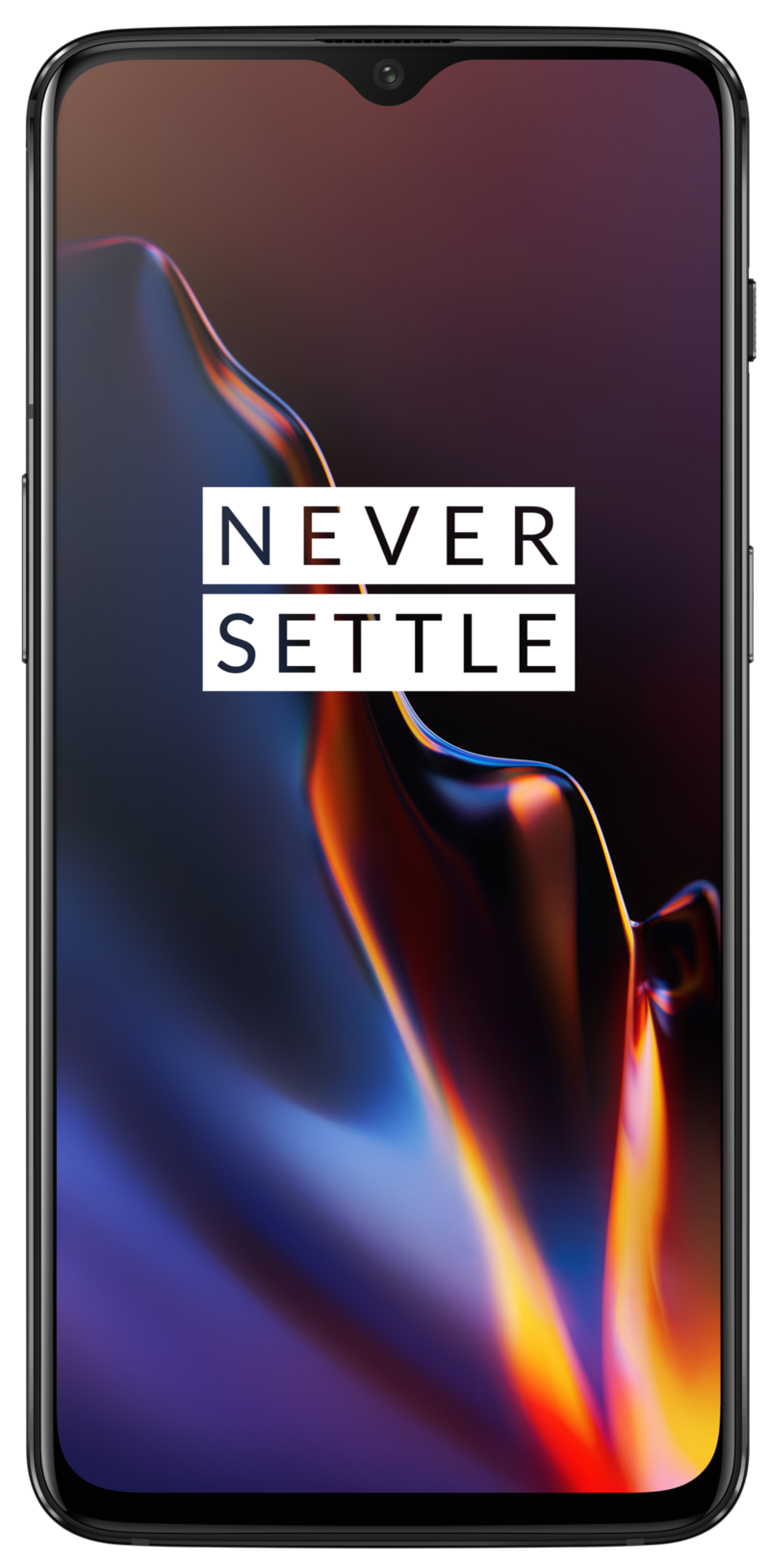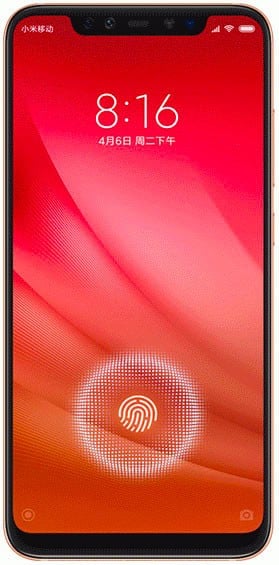Mi 11t Vs Mi 11t Pro

OnePlus 6T

(opens in new tab)
OnePlus's latest flagship is the culmination of years of progress for the nascent make. It's every bit fast or faster than most $1000 flagships, boasts every bit much RAM and storage as you could ever want, and has the nicest software outside of Google's Pixel serial. The biggest thing you miss out on is an fantabulous camera, but fifty-fifty there the 6T punches above its weight.
OnePlus 6T
Pure speed
Phenomenal performance
Long battery life
Latest Android software
Make clean, fast OxygenOS
No headphone jack
Bad haptics
Less-than-perfect in-screen fingerprint
Xiaomi Mi 8 Pro

(opens in new tab)
Xiaomi's first flagship entry into the Britain market is a great-looking telephone that'southward also excellent value for money, peculiarly if photograph quality is important. Only its MIUI software, currently based on Android Oreo, may be offputting. And the mere 3,000mAh cell ways multi-day battery life is out of the question for all but the lightest of users.
Xiaomi Mi 8 Pro
A challenger approaches
Compact blueprint
Slap-up camera
Sharp design with aesthetic flair
Defended telephoto lens
Ships on Oreo
Small-scale battery
Xiaomi historically slower with updates
Here are ii phones with identical starting prices and very different priorities. The 6T embodies OnePlus's transformation from a niche enthusiast brand into a mainstream hitting, while the Xiaomi Mi 8 Pro is more of a traditional flagship phone, with a smaller size and greater emphasis on things like camera hardware.
What's the divergence between the OnePlus 6T and Xiaomi Mi eight Pro?
The about noticeable difference between these two phones is their size. An extra 0.two inches on the diagonal makes the Xiaomi Mi eight Pro more one-handable than the OnePlus 6T. (Though for some, the 6T's expansive display may be a reason to buy.) The Mi eight Pro's smaller size ways it has a significantly lower bombardment chapters than than the 6T, though at least information technology's kitted out with the latest Qualcomm Quick Charge iv for speedy refills. The shape of the Mi 8 Pro is more iPhone-similar than many Android phones, with softly rounded corners and sides, and even a camera module styled after Apple'due south latest handsets. Size aside, the display quality of both phones is impressive, with ample daylight visibility and vivid colors. The 6T pushes the limits of reasonable pixel density at Total Hd; all the same, these are both smashing displays.
The cadre specs are evenly matched exterior of a couple of areas. Both are Snapdragon 845 handsets with RAM starting at 6GB and storage at 128GB. Both offer in-screen fingerprint solutions that aren't great, but are simply nearly acceptable. Both accept bottom-firing speakers and lack removable storage, iii.5mm headphone jacks and any kind of official IP rating. Both back up two of the quickest quick-charging implementations around: the standard formerly known as Dash Charge on the 6T, and Qualcomm'southward Quick Charge four+ on the Mi viii Pro.
Withal the bombardment capacities here are miles apart. The OnePlus 6T is one of the best-performing Android phones of the moment for battery life, with a healthy 3,700mAh power pack, while the Mi eight Pro is at all-time average with its 3,000mAh cell.
| Category | OnePlus 6T | Xiaomi Mi 8 Pro |
|---|---|---|
| Operating organization | Android nine Pie | Android viii.1 Oreo |
| Display | half dozen.41-inch AMOLED, 2340x1080 Gorilla Drinking glass 6 | six.21-inch AMOLED, 1080 10 2248 Gorilla Glass 5 |
| Processor | Qualcomm Snapdragon 845 | Qualcomm Snapdragon 845 |
| RAM | 6/8/10GB | 6/8GB |
| Storage | 128/256GB | 128GB |
| Expandable | No | No |
| Rear camera 1 | 16MP (IMX 519), 1.22-micron, f/1.seven, OIS 4K/sixty, 1080p/240, 720p/480 video | 12 MP, 1.iv-micron, f/ane.8, iv-axis OIS, dual pixel PDAF |
| Rear camera 2 | 20MP (IMX 376K), i-micron, f/1.seven | 12 MP, ane-micron, f/2.4, AF, 2x optical zoom |
| Front photographic camera | 16MP (IMX 371), ane-micron, f/2.0 | 8MP, f/1.7, car focus |
| Connectivity | Wi-Fi 802.11ac 2x2 MIMO, Bluetooth 5.0 LE, NFC, GPS | Wi-Fi 802.11ac 2x2 MIMO, Bluetooth 5.0 LE, NFC, GPS |
| Audio | Bottom-firing speaker USB-C | Bottom-firing speaker USB-C |
| Battery | 3700mAh Non-removable | 3000mAh Non-removable |
| Charging | 20W Fast Charge (formerly Dash Charge) | Qualcomm Quick Charge iv+ |
| Water resistance | No IP rating | No IP rating |
| Security | In-screen fingerprint + Confront unlock | In-screen fingerprint + face unlock |
| Dimensions | 157.five x 74.8 x viii.2 mm 185 chiliad | 154.9 ten 74.8 ten 7.6 mm 177 g |
| Colors | Midnight Black, Mirror Black, Thunder Royal, Speed Orangish | Black (transparent), Meteorite black, Twilight Golden |
The most tangible differences though, outside of the physical size of these devices, have to exercise the software experience and photographic camera quality on offer.
OnePlus's OxygenOS is one of our favorite Android experiences thanks to its make clean most-stock Android look and lightning-fast performance. OnePlus'south vision of Android doesn't stray far from Google's, yet in many cases, the visitor seems to do a better task optimizing the software even than Android's creators. The current OxygenOS 9 that ships on the OnePlus 6T is as well based on the latest iteration of Android, version 9 Pie, and the firm has an excellent track record for fast software updates. What'due south more, OxygenOS offers a ton of customization options, including reprogrammable buttons, gesture controls and an excellent always-on display characteristic. If you like to tweak and tinker, you'll detect enough to play with here.
Xiaomi's MIUI is highly differentiated, and doesn't really await like any other Android skin. It has its own angular await, with pastel colors, flat menus and icons, and pleasing animations. It's also adequately feature-rich, with Xiaomi's own creations similar the Mi Driblet file transfer app edifice on . However correct now the Mi 8 Pro'due south software is based on Android 8.1 Oreo, so yous'll demand to wait for a slice of Android Pie. What's more, Xiaomi's track tape with fast software updates is less than stellar.
Nicer software from the 6T versus better pics from the Mi viii Pro.
OnePlus has historically relied on software processing to pull alee in the photographic arena, and the 6T puts in a decent performance with its 16-megapixel, optically stabilized chief camera. (The second lens is for depth sensing in portrait shots and nothing else.) Virtually recently, OnePlus added a dedicated nighttime mode for clearer low-light captures, further nipping at the heels of expensive flagships. But the Mi viii Pro has an undeniable hardware advantage, with a superior 12-megapixel sensor with larger pixels, allowing for better depression-low-cal captures and college dynamic range without leaning on software magic.
What's more than, the Mi 8 Pro has a defended secondary telephoto camera, a feature missing from the 6T. OnePlus continues to rely on digital zoom, and the difference is plain to see. Despite some great software from OnePlus, Xiaomi has the advantage here.
Overall, this pairing is stacked in OnePlus's favor. It has the more than capable phone overall, mainly thanks to a bigger battery, ameliorate software and truly exceptional performance. Merely if you want the best camera at this cost, the Mi 8 Pro is as worthy of consideration — assuming you lot can live with the software and bombardment life trade-offs.

(opens in new tab)
The all-time affordable flagship
The OnePlus 6T is the all-time Android feel yous can take for under £500 -- and there'south a stiff case for saying it's one of the best smartphones available, menstruation. OnePlus gets the fundamentals right, and offers the fastest performance and some of best software features out there.

(opens in new tab)
A great camera for less.
Xiaomi's beginning aspirant into the Great britain market is a not bad little phone with a few potential pitfalls around battery life and software. Still, y'all'll struggle to observe a better smartphone photographic camera at this toll point
Alex was with Android Central for over a decade, producing written and video content for the site, and served equally global Executive Editor from 2016 to 2022.
Mi 11t Vs Mi 11t Pro,
Source: https://www.androidcentral.com/xiaomi-mi-8-pro-vs-oneplus-6t-which-should-you-buy
Posted by: hannayouteret.blogspot.com


0 Response to "Mi 11t Vs Mi 11t Pro"
Post a Comment